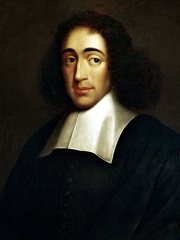
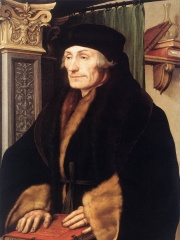
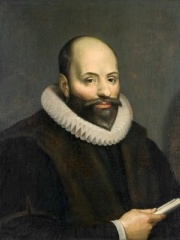
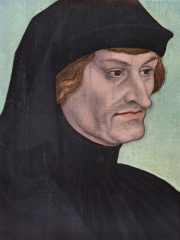
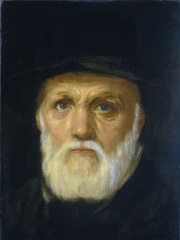
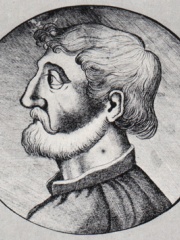


The Most Famous
PHILOSOPHERS from Netherlands
This page contains a list of the greatest Dutch Philosophers. The pantheon dataset contains 1,267 Philosophers, 9 of which were born in Netherlands. This makes Netherlands the birth place of the 24th most number of Philosophers behind Japan, and Algeria.
Top 9
The following people are considered by Pantheon to be the most legendary Dutch Philosophers of all time. This list of famous Dutch Philosophers is sorted by HPI (Historical Popularity Index), a metric that aggregates information on a biography's online popularity.

1. Baruch Spinoza (1632 - 1677)
With an HPI of 90.63, Baruch Spinoza is the most famous Dutch Philosopher. His biography has been translated into 117 different languages on wikipedia.
Baruch (de) Spinoza (24 November 1632 – 21 February 1677), also known under his Latinized pen name Benedictus de Spinoza, was a philosopher of Portuguese-Jewish origin, who was born and lived in the Dutch Republic. A forerunner of the Age of Enlightenment, Spinoza significantly influenced modern biblical criticism, 17th-century rationalism, and Dutch intellectual culture, establishing himself as one of the most important and radical philosophers of the early modern period. Influenced by Stoicism, Thomas Hobbes, René Descartes, Ibn Tufayl, and heterodox Christians, Spinoza was a leading philosopher of the Dutch Golden Age. Spinoza was born in Amsterdam to a Marrano family that fled Portugal for the more tolerant Dutch Republic. He received a traditional Jewish education, learning Hebrew and studying sacred texts within the Portuguese Jewish community, where his father was a prominent merchant. As a young man, Spinoza challenged rabbinic authority and questioned Jewish doctrines, leading to his permanent expulsion from his Jewish community in 1656. Following that expulsion, he distanced himself from all religious affiliations and devoted himself to philosophical inquiry and lens grinding. Spinoza attracted a dedicated circle of followers who gathered to discuss his writings and joined him in the intellectual pursuit of truth. Spinoza published little, to avoid persecution and bans on his books. In his Tractatus Theologico-Politicus, described by Steven Nadler as "one of the most important books of Western thought", Spinoza questioned the divine origin of the Hebrew Bible and the nature of God while arguing that ecclesiastic authority should have no role in a secular, democratic state. Ethics argues for a pantheistic view of God and explores the place of human freedom in a world devoid of theological, cosmological, and political moorings. Rejecting messianism and the emphasis on the afterlife, Spinoza emphasized appreciating and valuing life for oneself and others. By advocating for individual liberty in its moral, psychological, and metaphysical dimensions, Spinoza helped establish the genre of political writing called secular theology. Spinoza's philosophy spans nearly every area of philosophical discourse, including metaphysics, epistemology, political philosophy, ethics, philosophy of mind, and philosophy of science. His friends posthumously published his works, captivating philosophers for the next two centuries. Spinoza is celebrated as one of the most original and influential thinkers of the seventeenth century. Rebecca Goldstein dubbed him "the renegade Jew who gave us modernity".

2. Erasmus (1466 - 1536)
With an HPI of 88.33, Erasmus is the 2nd most famous Dutch Philosopher. His biography has been translated into 101 different languages.
Desiderius Erasmus Roterodamus ( DEZ-i-DEER-ee-əs irr-AZ-məs; Dutch: [ˌdeːziˈdeːrijʏs eːˈrɑsmʏs]; 28 October c. 1466 – 12 July 1536), commonly known in English as Erasmus of Rotterdam or simply Erasmus, was a Dutch humanist, Christian theologian, and pioneering philologist and educationalist. He was, through his writings and translations, one of the most influential scholars of the Northern Renaissance and a major figure of Western culture. Erasmus was an important figure in Renaissance classical scholarship who wrote in a spontaneous, copious and correct but natural Latin style. As a Catholic priest developing humanist techniques for working on texts, he prepared pioneering new Latin and Greek scholarly editions of the New Testament and of the Church Fathers, with annotations and commentary that were immediately and vitally influential in both the Protestant Reformation and the Catholic Reformation. He also wrote On Free Will, The Praise of Folly, The Complaint of Peace, Handbook of a Christian Knight, On Civility in Children, Copia: Foundations of the Abundant Style and many other academic, popular and pedagogical works. Erasmus lived against the backdrop of the growing European religious reformations. He developed a biblical humanistic theology in which he advocated the religious and civil necessity both of peaceable concord and of pastoral tolerance on matters of indifference. He remained a member of the Catholic Church all his life, remaining committed to reforming the church from within, but faced dangerous pushback from some university theologians. He promoted what he understood as the traditional doctrine of synergism, which some prominent reformers such as Martin Luther and John Calvin rejected in favour of the doctrine of monergism. His influential middle-road approach disappointed, and even angered, partisans in both camps.

3. Jacobus Arminius (1560 - 1609)
With an HPI of 69.78, Jacobus Arminius is the 3rd most famous Dutch Philosopher. His biography has been translated into 38 different languages.
Jacobus Arminius (; Dutch: Jakob Hermanszoon ; 10 October 1560 – 19 October 1609) was a Dutch Reformed minister and theologian during the Protestant Reformation period whose views became the basis of Arminianism and the Dutch Remonstrant movement. He served from 1603 as professor in theology at the University of Leiden and wrote many books and treatises on theology. Following his death, his challenge to the Reformed standard, the Belgic Confession, provoked ample discussion at the Synod of Dort, which crafted the five points of Calvinism in response to Arminius's teaching.

4. Rodolphus Agricola (1443 - 1485)
With an HPI of 67.41, Rodolphus Agricola is the 4th most famous Dutch Philosopher. His biography has been translated into 30 different languages.
Rodolphus Agricola (Latin: Rudolphus Agricola Phrisius; August 28, 1443, or February 17, 1444 – October 27, 1485) was a Dutch humanist of the Northern Low Countries, famous for his knowledge of Latin and Greek. He was an educator, musician, builder of church organs, a poet in Latin and the vernacular, a diplomat, a boxer and a Hebrew scholar towards the end of his life. Today, he is best known as the author of De inventione dialectica, the father of Northern European humanism and a zealous anti-scholastic in the late fifteenth century.
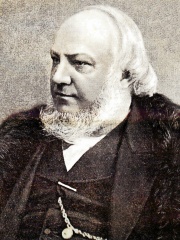
5. Jacob Moleschott (1822 - 1893)
With an HPI of 62.51, Jacob Moleschott is the 5th most famous Dutch Philosopher. His biography has been translated into 18 different languages.
Jacob Moleschott (; Dutch: [ˈmoːləsxɔt]; 9 August 1822 – 20 May 1893) was a Dutch physiologist and writer on nutrition and dietetics. He was known for his philosophical and political positions in regard to scientific materialism and against vitalism. He saw a need for scientists to engage in political thinking. He was a member of German Academy of Sciences Leopoldina (since 1884). Although born in the Netherlands, he studied in Germany and later wrote extensively in Italian, especially on "scienza positiva".

6. Dirck Coornhert (1522 - 1590)
With an HPI of 59.61, Dirck Coornhert is the 6th most famous Dutch Philosopher. His biography has been translated into 21 different languages.
Dirck Volckertszoon Coornhert (1522 – 29 October 1590), also known as Theodore Cornhert, was a Dutch writer, philosopher, translator, politician, theologian, and artist. Coornhert is often considered the Father of Dutch Renaissance scholarship.

7. Marsilius of Inghen (1335 - 1396)
With an HPI of 56.43, Marsilius of Inghen is the 7th most famous Dutch Philosopher. His biography has been translated into 15 different languages.
Marsilius of Inghen (c. 1340 – 20 August 1396) was a Dutch philosopher of the later Middle Ages who studied with Albert of Saxony and Nicole Oresme under Jean Buridan. He was Magister at the University of Paris as well as at the University of Heidelberg from 1386 to 1396.

8. Thomas van Erpe (1584 - 1624)
With an HPI of 56.04, Thomas van Erpe is the 8th most famous Dutch Philosopher. His biography has been translated into 16 different languages.
Thomas van Erpe, also known as Thomas Erpenius (September 11, 1584 – November 13, 1624), Dutch Orientalist, was born at Gorinchem, in Holland. He was the first European to publish an accurate book of Arabic grammar. After completing his early education at Leiden, he entered the university of that city, and in 1608 took the degree of master of arts. On the advice of Scaliger he studied Oriental languages whilst taking his course of theology. He afterwards travelled in England, France, Italy and Germany, forming connections with learned men, and availing himself of the information which they communicated. During his stay at Paris he contracted a friendship with Casaubon, which lasted during his life, and also took lessons in Arabic from an Egyptian, Joseph Barbatus, otherwise called Abu-dakni. However, given the limited knowledge Barbatus had in Arabic he later took lessons under the Moroccan diplomat of Andalusian origin Aḥmad ibn Qāsim Al-Ḥajarī who was in France on a mission. At Venice he perfected his knowledge of the Turkish, Persic and Ethiopic languages. After a long absence, Erpenius returned to his own country in 1612, and in February 1613 he was appointed professor of Arabic and other Oriental languages, Hebrew excepted, in the University of Leiden. Soon after his settlement at Leiden, animated by the example of Savary de Brèves, who had established an Arabic press at Paris at his own charge, he caused new Arabic characters to be cut at a great expense, and erected a press in his own house. In 1619 the curators of the university of Leiden instituted a second chair of Hebrew in his favour. In 1620 he was sent by the States of Holland to induce Pierre Dumoulin, or André Rivet, to settle in that country; and after a second journey he was successful in inducing Rivet to comply with their request. Some time after the return of Erpenius, the states appointed him their interpreter; and in this capacity he had the duty imposed upon him of translating and replying to the different letters of the Moslem princes of Asia and Africa. His reputation had now spread throughout all Europe, and several princes, the kings of England and Spain, and the archbishop of Seville made him the most flattering offers; but he constantly refused to leave his native country. He was preparing an edition of the Qur'an with a Latin translation and notes, and was projecting an Oriental library, when he died prematurely on the 13 November 1624 in Leiden. His library of oriental books, papers and manuscripts, including six undated Malay manuscripts, was purchased by George Villiers, 1st Duke of Buckingham on behalf of Cambridge University and eventually transferred to Cambridge University Library in 1632 by the University Librarian Abraham Wheelocke. Among his works may be mentioned his Grammatica Arabica (1748), published originally in 1613 and often reprinted; Rudimenta linguae Arabicae (1620); Grammatica Ebraea generalis (1621); Grammatica Chaldaea ac Syra (1628); and an edition of George Elmacin's Historia Saracenica, Arabice & Latine (History of the Saracens).

9. Bas van Fraassen (b. 1941)
With an HPI of 54.63, Bas van Fraassen is the 9th most famous Dutch Philosopher. His biography has been translated into 17 different languages.
Bastiaan Cornelis "Bas" van Fraassen (; Dutch: [bɑs vɑn ˈfraːsə(n)]; born 5 April 1941) is a Dutch-American philosopher noted for his contributions to philosophy of science, epistemology and formal logic. He is a Distinguished Professor of Philosophy at San Francisco State University and the McCosh Professor of Philosophy Emeritus at Princeton University.
People
Pantheon has 9 people classified as Dutch philosophers born between 1335 and 1941. Of these 9, 1 (11.11%) of them are still alive today. The most famous living Dutch philosophers include Bas van Fraassen. The most famous deceased Dutch philosophers include Baruch Spinoza, Erasmus, and Jacobus Arminius.
Living Dutch Philosophers
Go to all RankingsDeceased Dutch Philosophers
Go to all RankingsBaruch Spinoza
1632 - 1677
HPI: 90.63
Erasmus
1466 - 1536
HPI: 88.33
Jacobus Arminius
1560 - 1609
HPI: 69.78
Rodolphus Agricola
1443 - 1485
HPI: 67.41
Jacob Moleschott
1822 - 1893
HPI: 62.51
Dirck Coornhert
1522 - 1590
HPI: 59.61
Marsilius of Inghen
1335 - 1396
HPI: 56.43
Thomas van Erpe
1584 - 1624
HPI: 56.04

